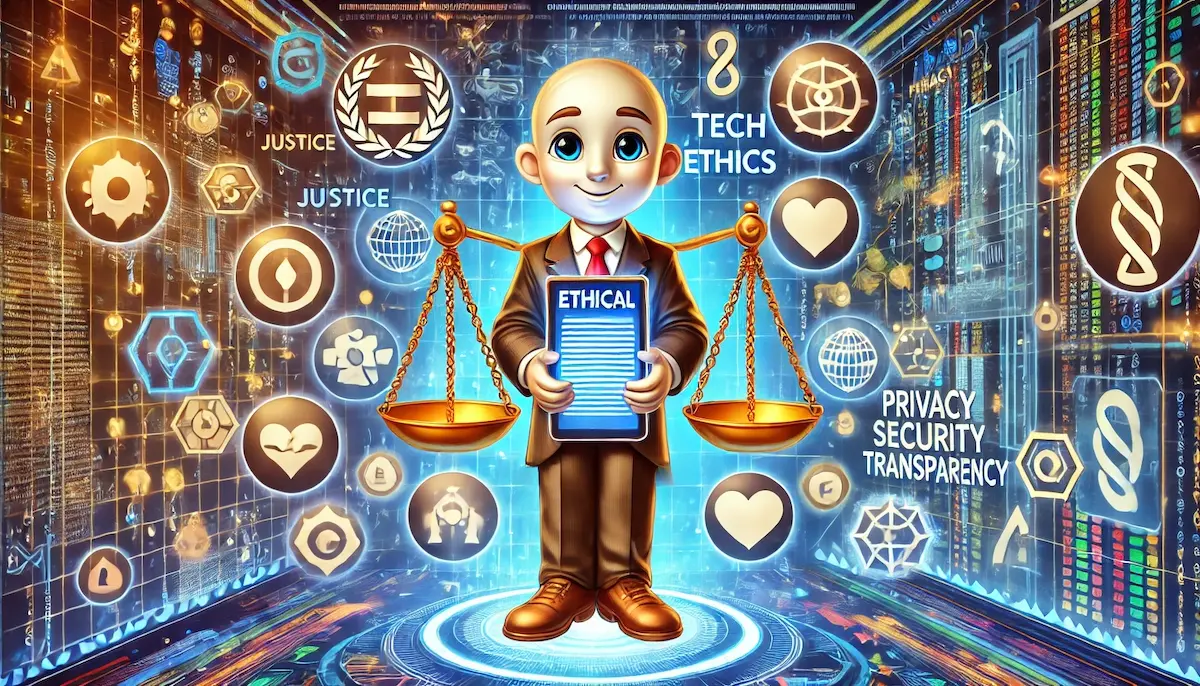Tech ethics is a multidisciplinary field that examines the moral and ethical implications of technology and its impact on society. As technology becomes increasingly integral to our daily lives, it is crucial to consider the ethical dimensions of its development, deployment, and use. Tech ethics aims to ensure that technology serves the common good, promotes fairness, and respects human rights.
Key Principles of Tech Ethics
Privacy
Privacy is a fundamental principle in tech ethics, focusing on the right of individuals to control their personal information. With the rise of big data, social media, and surveillance technologies, protecting privacy has become increasingly challenging. Ethical considerations include ensuring informed consent, minimizing data collection, and implementing robust data protection measures.
Security
Security involves protecting digital systems and data from unauthorized access, cyberattacks, and other threats. Tech ethics emphasizes the importance of designing secure systems, safeguarding user data, and preventing harm caused by security breaches. It also considers the ethical implications of surveillance and the balance between security and privacy.
Transparency
Transparency in technology refers to the openness and clarity with which organizations communicate their data practices, algorithms, and decision-making processes. Transparency builds trust and accountability, allowing users to understand how their data is used and how decisions affecting them are made. This principle is essential for mitigating biases and ensuring fair treatment.
Accountability
Accountability means holding individuals and organizations responsible for their actions and decisions in the tech domain. This includes addressing issues such as algorithmic bias, misinformation, and the ethical implications of artificial intelligence (AI). Accountability ensures that there are consequences for unethical behavior and that ethical standards are upheld.
Equity
Equity in tech ethics focuses on ensuring that technology benefits all members of society fairly and does not exacerbate existing inequalities. This includes addressing the digital divide, promoting inclusivity, and ensuring that marginalized communities have access to and can benefit from digital technologies.
Ethical Issues in Technology
Artificial Intelligence and Machine Learning
AI and machine learning have the potential to revolutionize industries but also raise significant ethical concerns. Issues such as algorithmic bias, lack of transparency, and the potential for misuse highlight the need for ethical guidelines. Ensuring that AI systems are fair, transparent, and accountable is crucial for their ethical deployment.
Data Privacy and Surveillance
The extensive collection and analysis of personal data by governments, corporations, and other entities pose significant privacy challenges. Ethical considerations include ensuring informed consent, protecting individuals’ data from misuse, and balancing the benefits of data collection with the right to privacy.
Cybersecurity and Cybercrime
As digital technologies become more integrated into everyday life, the threat of cyberattacks and cybercrime increases. Ethical considerations in cybersecurity involve protecting individuals and organizations from harm, ensuring that cybersecurity measures do not infringe on privacy, and promoting ethical behavior among cybersecurity professionals.
Digital Divide and Inclusivity
The digital divide refers to the gap between those who have access to digital technologies and those who do not. Ethical considerations include addressing this disparity, ensuring that all individuals have access to the benefits of technology, and promoting digital literacy and skills across different populations.
Misinformation and Digital Literacy
The spread of misinformation and fake news is a significant ethical issue in the digital age. Ethical considerations involve promoting digital literacy, ensuring that individuals can critically evaluate information online, and holding platforms accountable for the spread of false information.
Frameworks and Approaches to Tech Ethics
Ethical Guidelines and Standards
Various organizations and institutions have developed ethical guidelines and standards to address the challenges of tech ethics. These guidelines provide principles and best practices for the responsible use of technology, helping to ensure that ethical considerations are integrated into technological development and deployment.
Ethical Design and Development
Ethical design and development involve integrating ethical considerations into the design and development processes of digital technologies. This approach ensures that ethical issues are addressed from the outset, rather than as an afterthought, and promotes the creation of technologies that are beneficial and fair to all users.
Regulatory and Legal Approaches
Regulatory and legal approaches to tech ethics involve creating laws and regulations that govern the use of digital technologies. These approaches aim to protect individuals’ rights, ensure accountability, and promote the responsible use of technology.
Corporate Social Responsibility (CSR)
Many tech companies adopt CSR strategies to ensure their operations align with ethical principles. CSR initiatives may include sustainable practices, fair labor policies, and community engagement, reflecting a commitment to ethical behavior beyond mere compliance with regulations.
Conclusion
Tech ethics is an essential field that addresses the complex and evolving ethical challenges posed by digital technologies. By focusing on principles such as privacy, security, transparency, accountability, and equity, tech ethics provides a framework for the responsible development and use of technology. As digital technologies continue to advance, the importance of ethical considerations will only grow, ensuring that technology serves the greater good and enhances the well-being of all individuals.
Blockfine thanks you for reading and hopes you found this article helpful.
